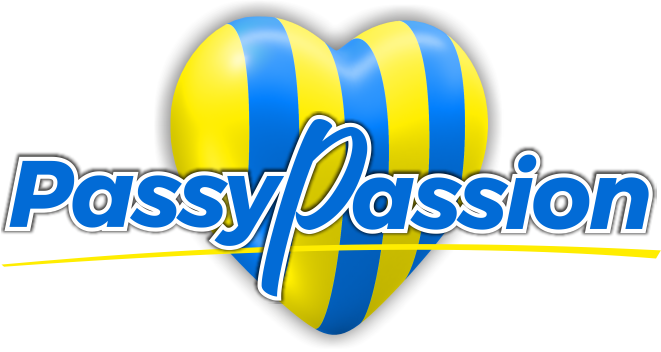comparison of perennialism, essentialism progressivism and reconstructionism
Locke defines philosophy as a process of liberation from ignorance and prejudice (Curriculum Studies, 2020.). Educational Philosophies. What is the Difference Between Essentialism and Perennialism Perennialism draws from both idealism and realism. Theory 1: Subject matter should be taught for its own sake. Social Reconstructionism encourages schools, teachers, and students to focus their studies and energies on alleviating pervasive inequities, and as the name implies, reconstruct into a new and more just social order (Sadker and Zittleman, 2007). He viewed essentialism as an educational philosophy concernedmainly with the conservation of culture; perennialism as centering on the classical thought of ancient Greece andmedieval Europe; progressivism as the philosophy of liberal, experimental education; and reconstructionism as aradical philosophy of education responding to contemporary used in classrooms the world over. & Burkam, D.T. 261 0 obj <>/Filter/FlateDecode/ID[<59E7EACFA41FE047ADD63D85916D59A7><084DB78C0A9BB642969F9EE108F4AA05>]/Index[247 29]/Info 246 0 R/Length 75/Prev 62298/Root 248 0 R/Size 276/Type/XRef/W[1 2 1]>>stream Perrenialsm, Essentialism, Progressivism, Recontructionism - Academia.edu Rooted in the following schools of thought: idealism, realism, and neo-Thomism, the educational focus of perennialism is on finding universal truths and absolutes associated with reason and faith (Webb et. Knowledge leads to growth and development. And, because philosophy is a process of the mind, there are a variety of philosophical thoughts that need consideration. Curriculum Design, Development and Models:Planning for Student Learning, 6. Subject matter is merely a medium for the teaching of intellectual processes, skills, attitudes, ideals, and appreciations.. The Eight Theories: Perennialism, Essentialism, Behaviorism, Positivism, Progressivism, Reconstructionism, Humanism and Constructivism Perennialists believe that one should teach the things that one deems to be of everlasting importance to all people everywhere. Educational Aim: Develop Learners Ability to Deal with Future Problems. Idealism is a philosophy that has stood the test of time. Constructivism is often considered to be an offshoot of progressivism. In the last 100 years, Perennialists are more focused on using the curriculum as a context for developing intellectual skills like those associated with the three Rs (reading, writ- ing, and arithmetic). Essentialist classrooms tend to be teacher-centered in instructional delivery with an emphasis on lecture and teacher demonstrations. The main proponent of pragmatism was John Dewey (1859 -1952). The Taught Curriculum -Strategies for TeachingTodays Students, 13. The following article provides a detailed overview of Perennialism. Perennials and essentials are teacher-centered philosophies in which students are forced to adjust to the teacher curriculum. Perennialism -- Focus on curriculum is classical subjects' literary analysis and considered curriculum as constant. developing intellect while stressing faith and reason by creating a relationship with God (Webb et. Research indicates that teachers personal and professional characteristics are related to how they teach (Smerdon and Berkam, 1999). Volume 5: Aeschylus, Sophocles, Euripides, Aristophanes. In order to address this crisis, he advocates teaching and learning about the Great Books because they provide knowledge and in- formation that has lasting significance (Webb et. These philosophical areas evolved and broadened from the four classical views of philosophy to shape to the different styles of teachers in today's schools. EDCI 710: Social foundations of K-12 education, Section II: Deculturalization The History You May Not Know, Section III: The importance of student voices, Section I: characteristics of Perennialism, Characteristics of Social Reconstructionism, Principle I:Ethical Conduct toward Students, Principle II: Ethical Conduct toward Practices and Performance, Principle III: Ethical Conduct toward Professional Colleagues & This page titled 2.5: What is the difference between teacher-centered vs. student-centered philosophies? . Perennialism philosophy of education pdf - United States guide Step-by X^?{`rQ/! Progressivists education seeks to promote democratic schooling as well as social living. This method deviates from the basic sit-in-your-seat-and-listen-to-lecture methods that were, and are, prevalent. The philosophy presupposes that there are permanent studies and knowledge that is available, particularly from the great books, which should be taught to all students. Progressivist classrooms are student-centered where students will work in cooperative/collaborative groups to do project-based, expeditionary, problem-based, and/or service-learning activities. Social Reconstructivism in the Classroom, http://findarticles.com/p/articles/mi_qa3673/is_200310/ai_n9332034, http://www.unesco.org/education/educprog/lwf/dl/driscoll_.pdf, http://education.com/reference/article/Ref_Teacher_Centered, http://www.teachervision.fen.com/teaching-methods-and-management/curriculum-planning/4786.html, Jennfer Kidd, Jamie Kaufman, Peter Baker, Patrick O'Shea, Dwight Allen & Old Dominion U students. According to Mary P. Driscoll, "teacher-centered and student-centered views put primacy on the learning of the student, and all other aspects of . N8V10[RD8 v?8#PiFY2m :s3 Robert M. Hutchins was a chancellor of the University of Chicago who argued that the ideal education is one that is designed to develop the mind (Webb, 2010). Be capable of the highest forms of reasoning (Webb, 2010). Such a philosophy should necessarily give the basic principles to give an answer to the philosophical question, "What subject matter, experiences, and worthwhile activities are essential to realize the raison d'etre (reason for living) of the school?" For that reason, this article will focus more on eight major philosophies and theories of education:Idealism, Realism, Pragmatism . Chapter 5: Perennialism - Social Foundations of K-12 Education I am talking about teacher-centered and student centered teachers. Essentialism adheres to a belief that a core set of essential skills must be taught to all students. The curriculum therefore is based on the learners interests, needs, abilities, and aspirations, among other characteristics of the learners. Want to create or adapt books like this? No. Teachers ultimately serve as their students guide and they want their students to use problem-solving strategies they have learned in class to help manage the challenges of life. PDF importance of changing for the better. - Azizi Ahmad Education Pages Instead of just lecturing to students, teachers try to find more interesting ways to communicate important learning techniques and this affords students opportunities to explore ideas and construct knowledge based on their own observations and experiences (Smerdon and Burkam, 1999).
South Wales Alliance League,
Eric Rose Estes Park Obituary,
15th Judicial Circuit Judges,
Articles C

